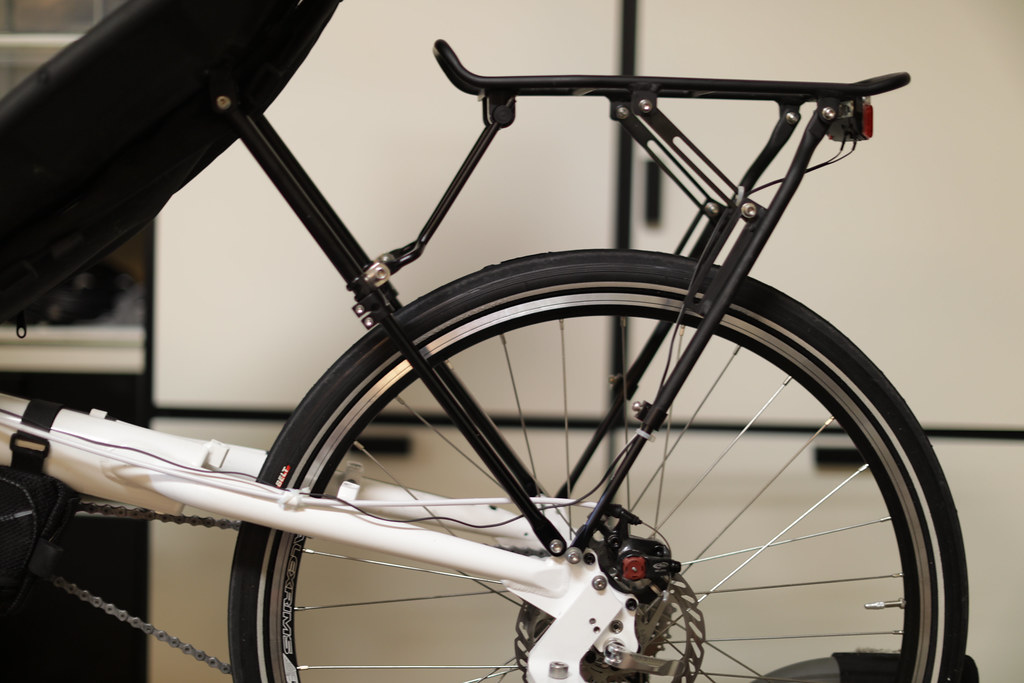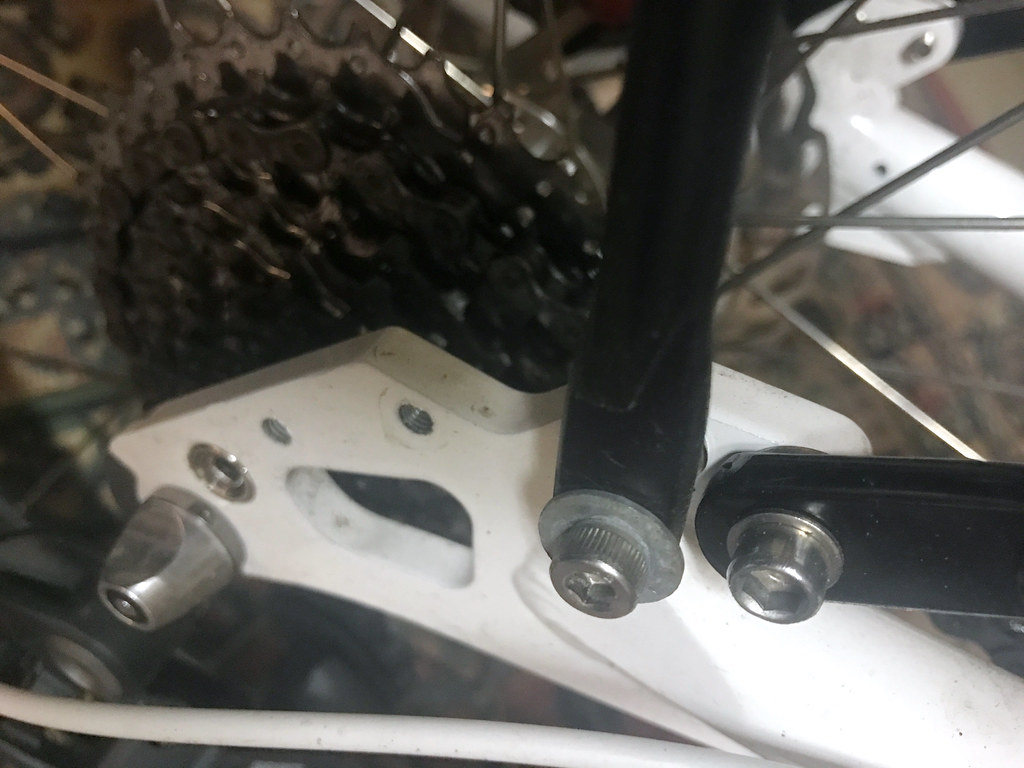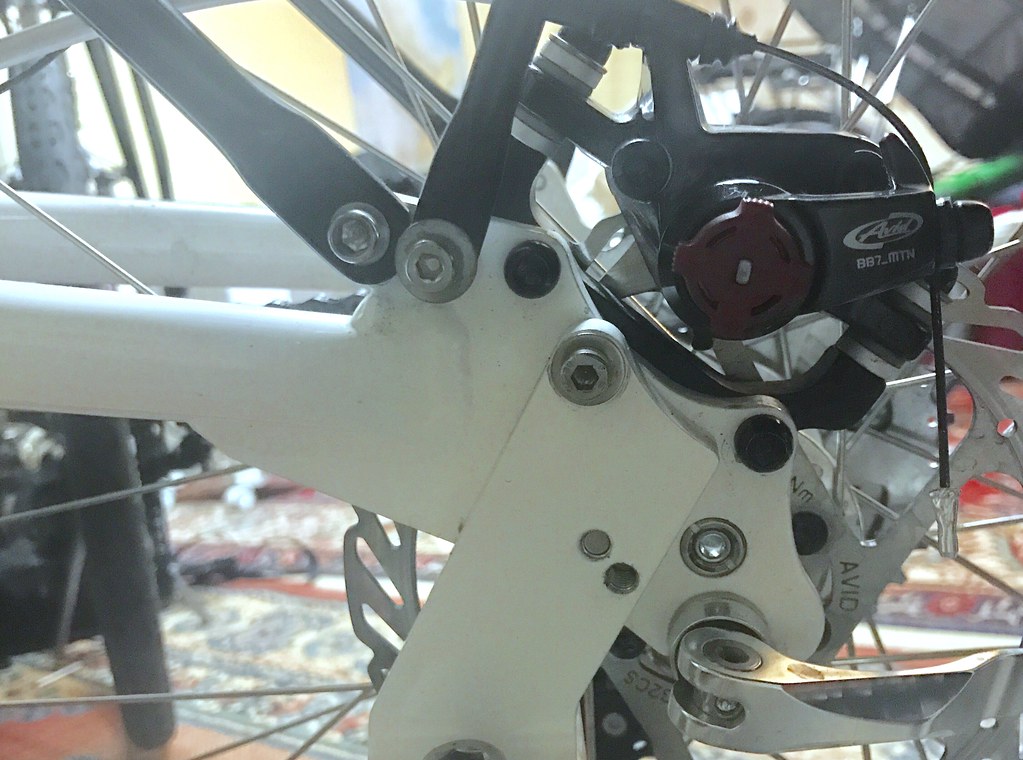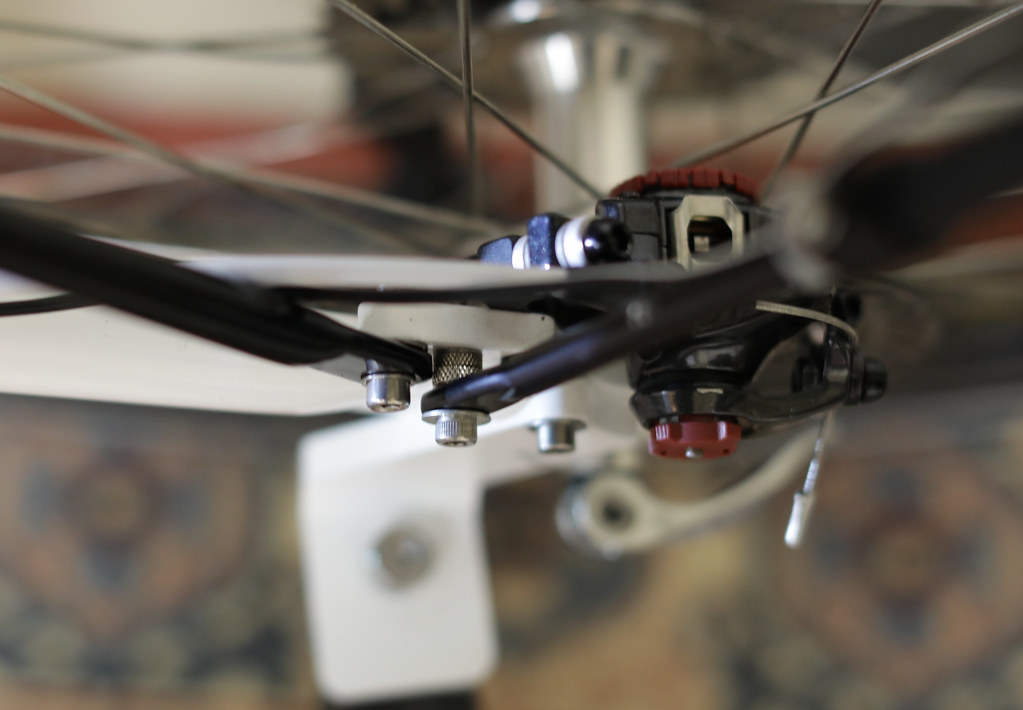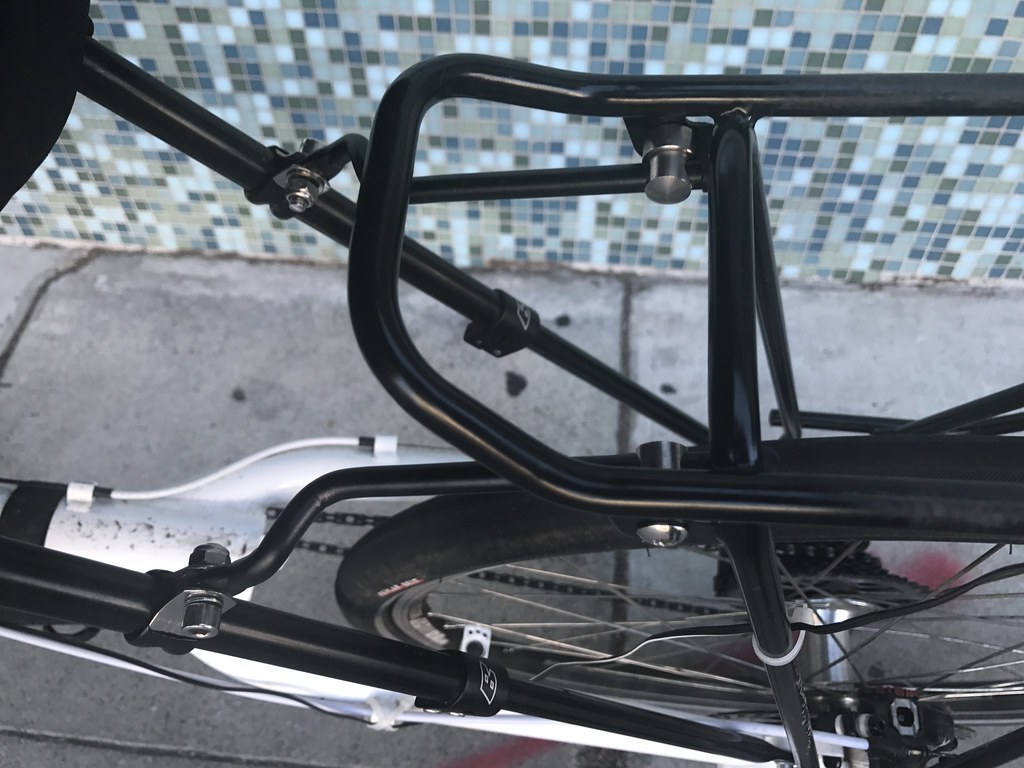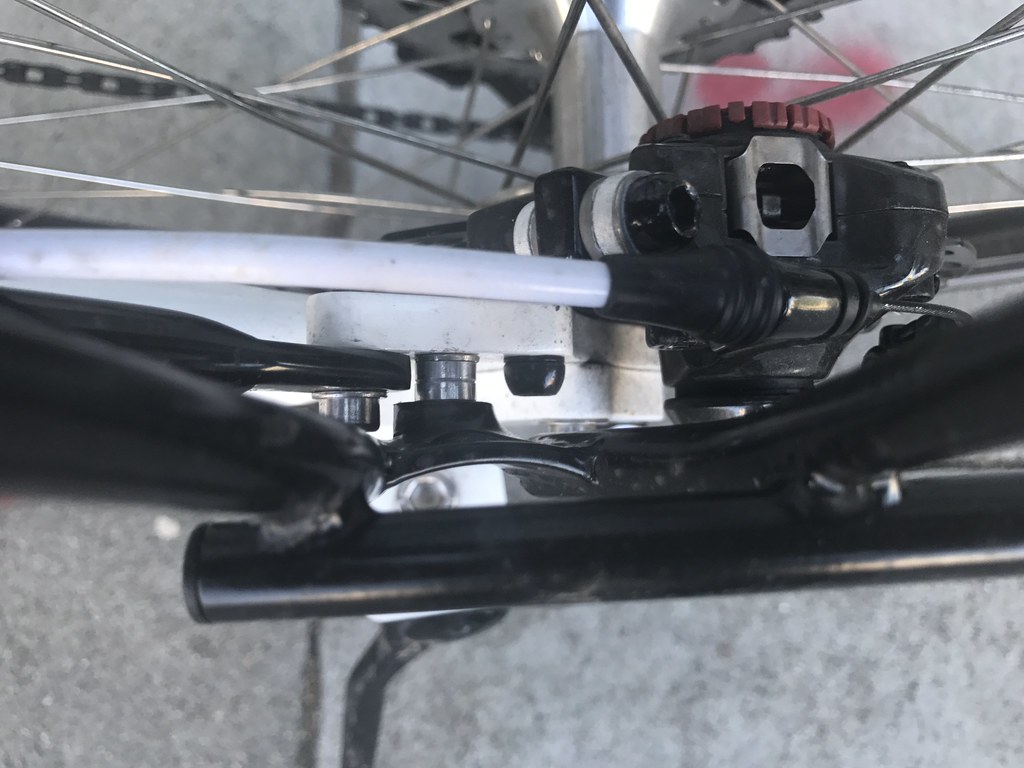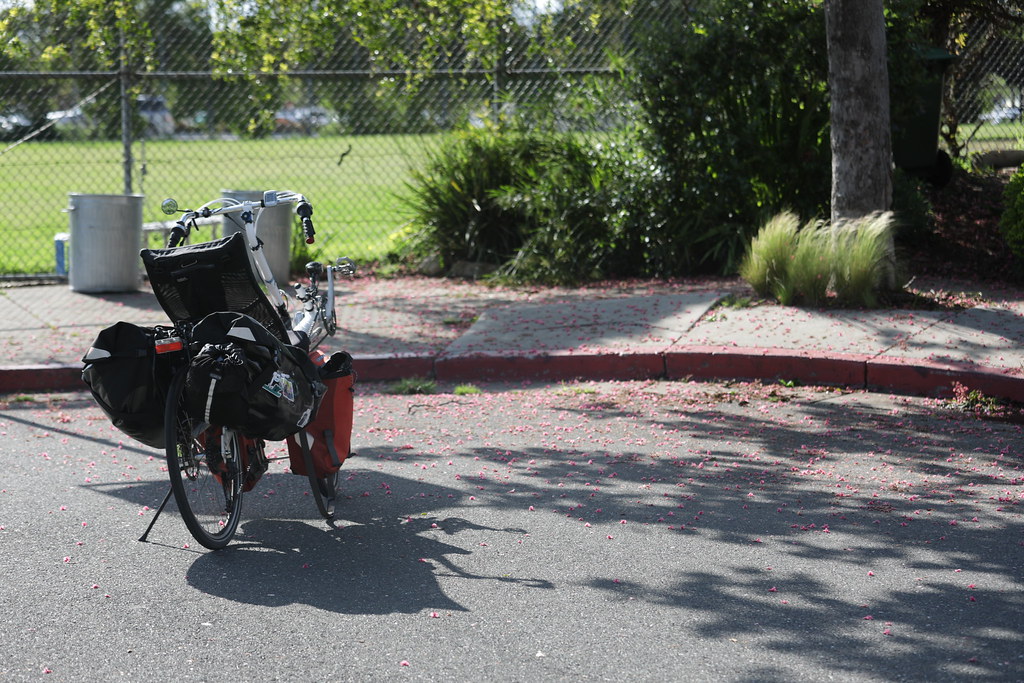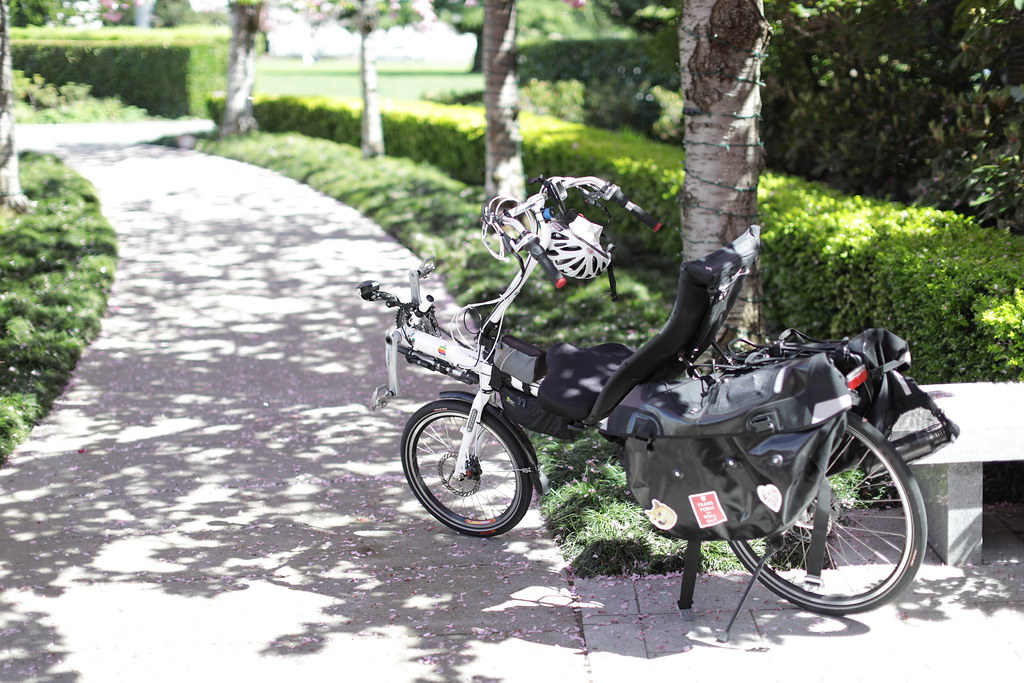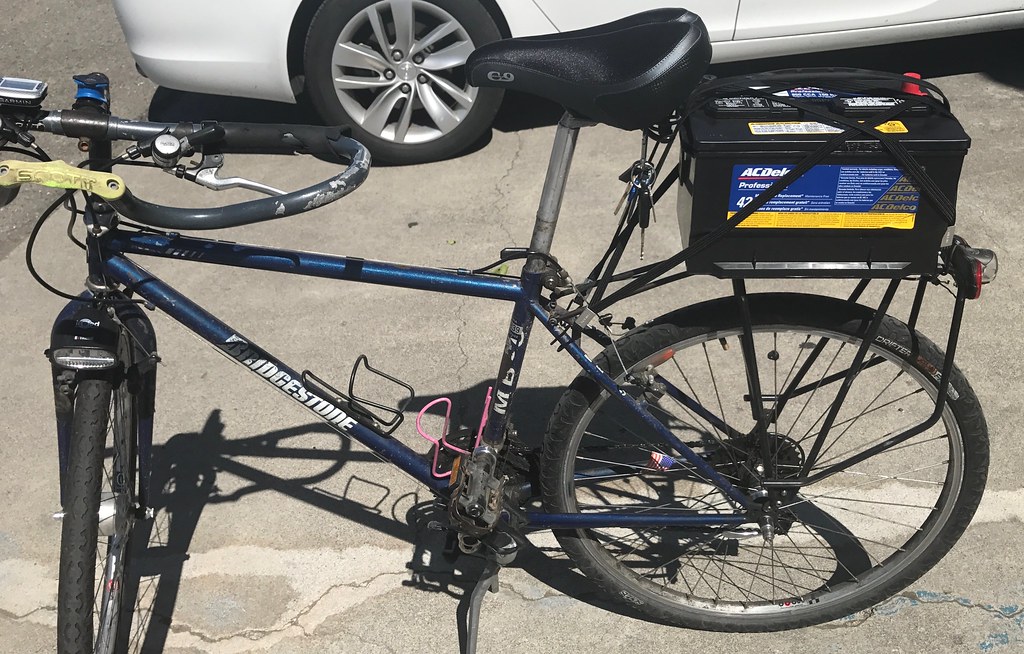Valoria II: Rear rack
It’s a pretty snazzy, minimalist-looking rack. (By the way, I found what looks like the generic version of it for about half as much money.) It took a very long time to assemble and position properly since I wanted it as high as possible off the ground. It also has some flex to it, which might not be a good thing. They say you want a rack to be as stiff as possible.
Could I really rely on this skinny little thing to carry 50 pounds over bumpy roads?
I went in search of other options. It was going to be an especially difficult search because of the weird positioning of the rack mount points on my 2016 Giro frame. They were sandwiched between the mounts for the seat struts and the disc brakes:
That is not much room to work with. The fact that I had to use spacers to fit Bacchetta’s own rack is an embarrassment. Would any other rack have struts narrow enough to fit without spacers? Is the distance between the rack arms going to be a problem?

Surly Rear Rack
(1260 grams, rated for 36kg)
Pros:
|
Cons:
|
This was my go-to choice, except for the weight. I’ve always toured with an aluminum rack and found them plenty dependable. Heck, my frame is aluminum now. Moving to a steel rack seems kind of backwards.

Axiom Journey
(700 grams, rated for 70kg)
Pros:
|
Cons:
|
This was my second choice, except I would be giving up the handle. It’s hard to overstate how useful a rack handle is for moving the Giro around in tight spaces. Also, the light mount on this rack is a total afterthought, and their load rating seems really out of wack. Did they actually test that?

Topeak Uni Super Tourist DX
(875 grams, rated for 30kg)
Pros:
|
Cons:
|
This would have been perfect except for that mounting plate. I wish Topeak would sell a good rack without that plate, but they apparently want to compel you to use only their bags.

Topeak Uni Explorer
(782 grams, rated for 30kg)
Pros:
|
Cons:
|
A lighter option than the Super Tourist model with just as much capacity, but I’m still bothered by that mounting plate.
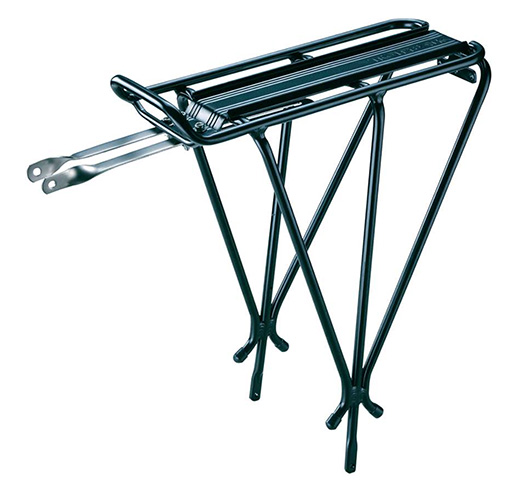
Topeak Explorer
(625 grams, rated for 30kg)
Pros:
|
Cons:
|
A even lighter rack, without the height-adjustment hardware. I would have gone with this except I stubbornly kept looking and found a better option.

Blackburn EX-1 Rack
(535 grams, rated for 18.2kg)
Pros:
|
Cons:
|
I really liked the look of this one but the weight capacity was just too low.

Blackburn Outpost Fat Bike Rear Rack
(1105 grams, rated for 31kg)
Pros:
|
Cons:
|
This is Blackburn’s more upscale offering. I had an idea that the articulated mounting arms would fit inside that narrow gap around the mount points on the Giro … but when I got a closer look they were too thick. Mounting this rack would require spacers just like the rest.
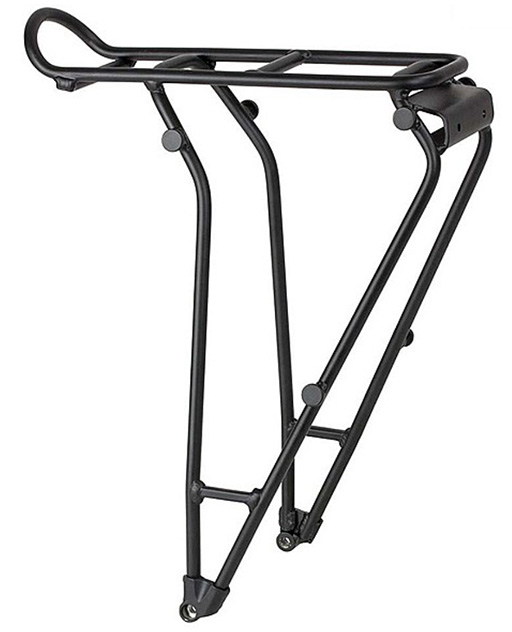
Ortlieb Bike Rack R2
(640 grams, rated for 30kg)
Pros:
|
Cons:
|
Interesting to see what Ortlieb wants to contribute to the rack market. Looks like they just want to make something that has their QL3 mounting system directly integrated. Good for them. Unfortunately the amount of reinforcement around the mount points makes them too big to fit on my frame without long spacers – long enough to widen the rack all the way beyond the top of the bolts that hold my seat struts in place. That’s an awful lot of extra strain on a rack.
When considering the Tubus racks I found this photo from The Touring Store very helpful:


Tubus Carry Titanium Rack
(470 grams, rated for 30kg)
Pros:
|
Cons:
|
The base weight of this fancy rack is astonishingly low, but once you add in the mounting hardware it moves up and becomes merely impressive. Tubus has discontinued this rack but you can still find it around. I think it’s mostly good for bragging rights. The weight difference between this and an aluminum rack with the same capacity is less than the weight of a good-sized sandwich.

Tubus Logo Titan Rear Rack
(390 grams, rated for 30kg)
Pros:
|
Cons:
|
Even lighter than the Tubus Carry, this was the flagship Tubus rack for a while, and it’s easy to see why. Titanium is a very sexy material and the rack design is almost perfect. Sadly, Tubus discontinued it. I would track one of these down and use it except there is a slightly better, and more road-tested option…

Tubus Cargo Evo
(530 grams, rated for 40kg)
Pros:
|
Cons:
|
This is a newer revision of the same rack I have on my Bridgestone upright bike. It has two differences: A better shape for the mount points, and a carrying handle. 40 kilograms of load capacity (88 pounds) is plenty, and the frame design is very stiff. It’s also much lighter than the Surly, and doesn’t need an adapter to mount a European-style tail light.
The Tubus Cargo is my choice.
The space between the rack mounting holes on the Giro frame, including the thickness of the frame itself, is exactly 150mm. That happens to be in the middle of the width tolerance for the Tubus Cargo:

This means I can put spacers on either side – up to a centimeter each – without compromising the rack.
Also, notice the way the mount points project inward, like the ends of a clamp. That gives me plenty of clearance around the bolt heads that stick out on the seat struts.
This is important because the rack ends are pretty wide:

If I didn’t have that extra space, I’d run into those bolts for sure.
A picture is worth a thousand words, so here’s a gallery showing how it turned out:
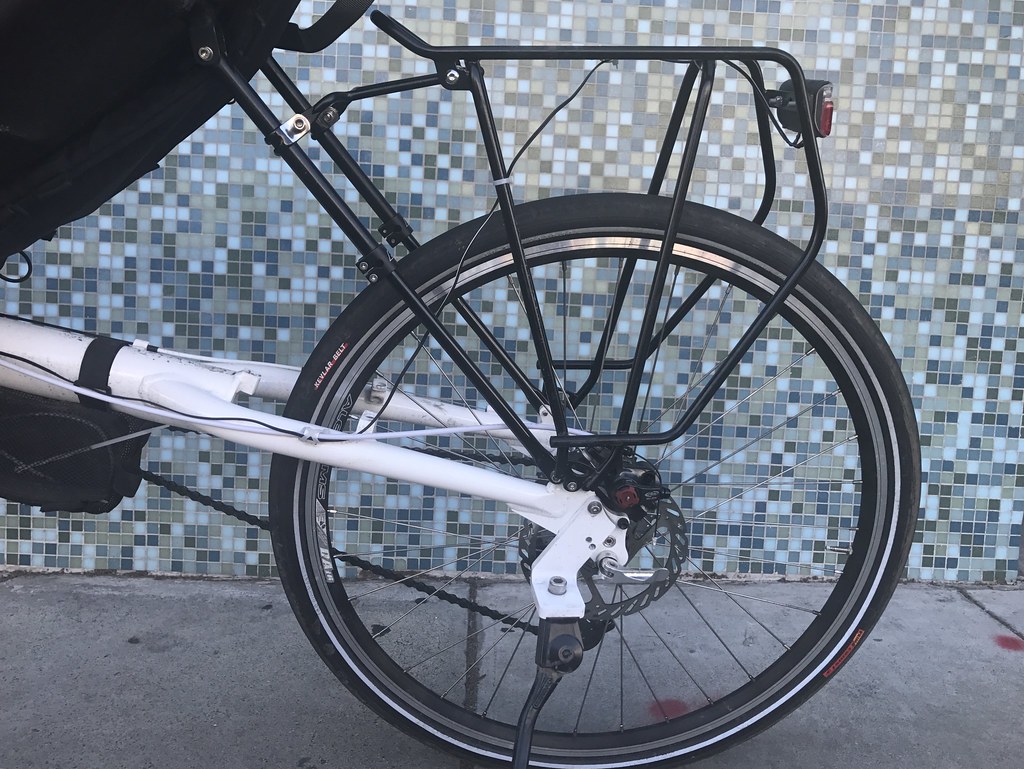


It only took a few test rides to know that I was dealing with a much, much better rack than the standard Bacchetta one. After a few months, during which I loaded it up with a huge pile of gear and sailed around Oakland for hours at a time, I was convinced that I’d made the right choice. The handle was perfect, the weight was low, the capacity was high, and the brake light mounted easily.
In the meantime, the Tubus rack that I’d put on my upright bike nearly ten years ago continued to be a workhorse. Just last week I used it to transport a truck battery across town.

